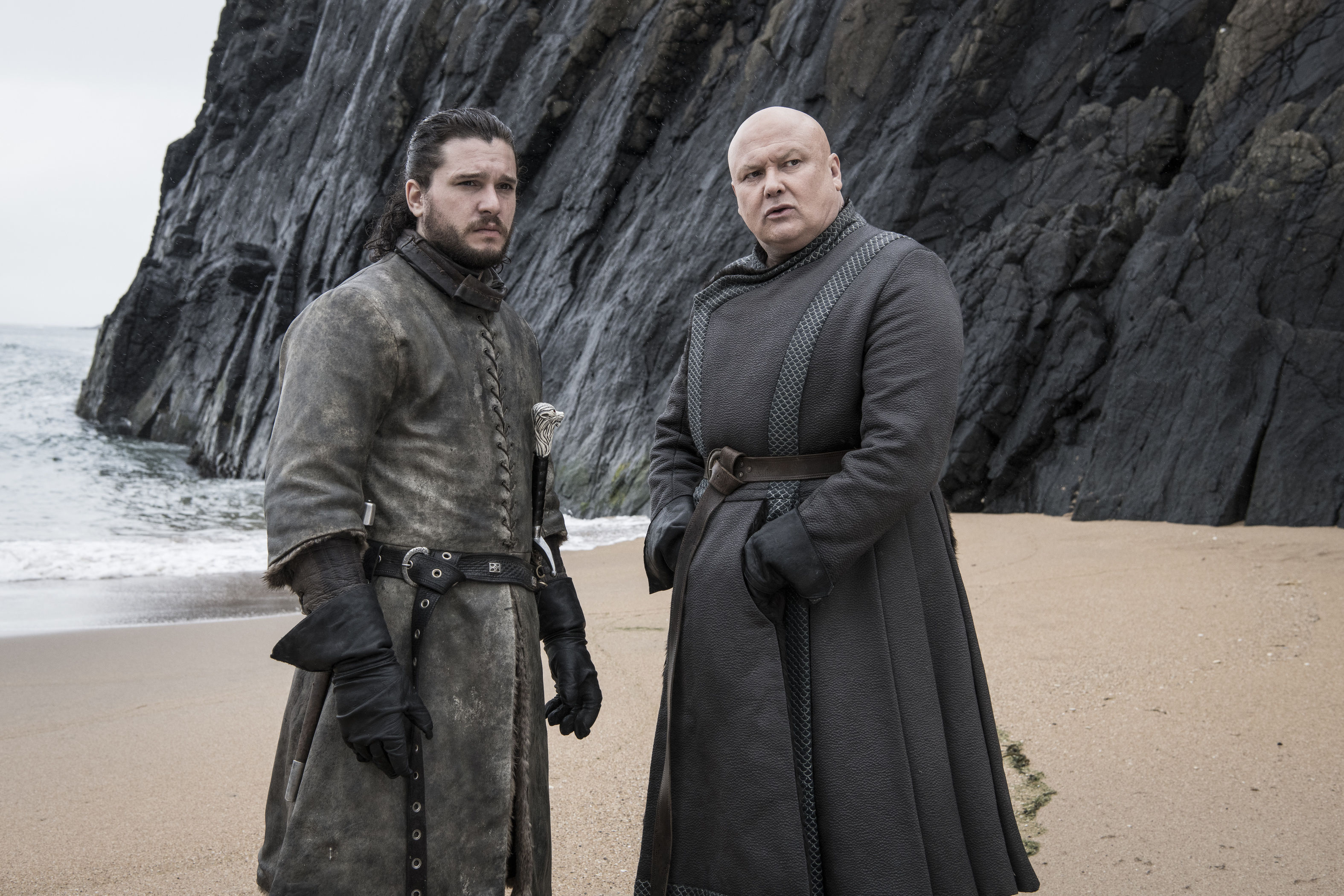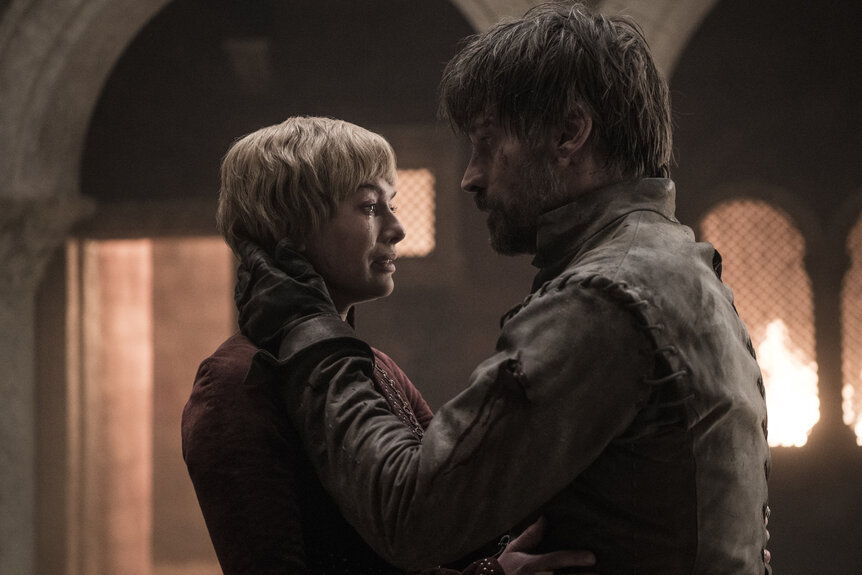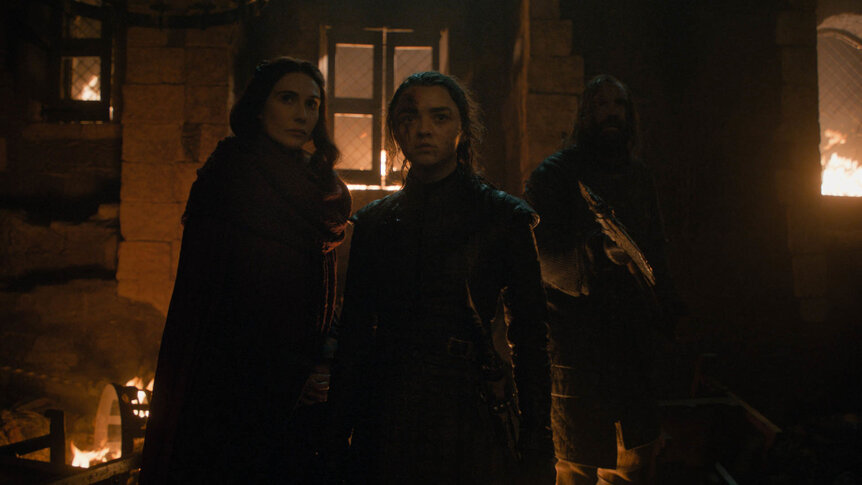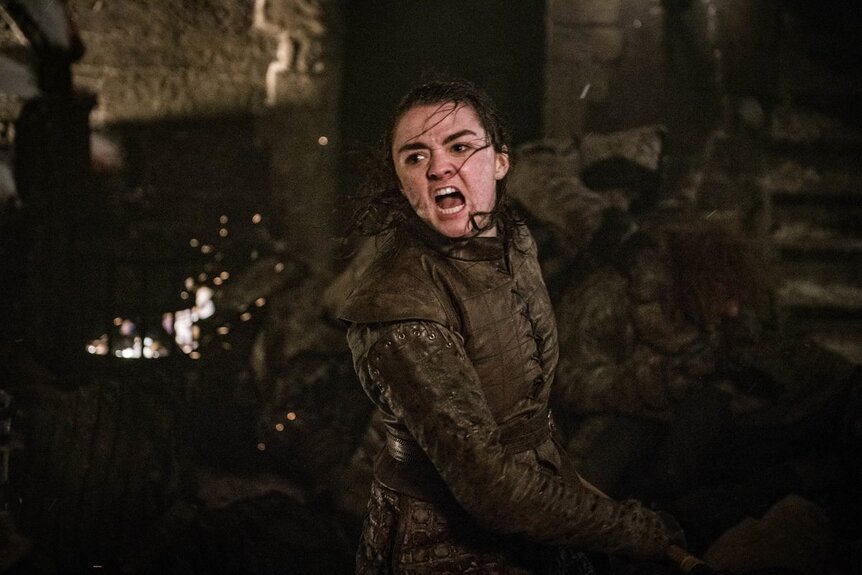Create a free profile to get unlimited access to exclusive videos, sweepstakes, and more!
Game of Thrones never fulfills prophesies the way you’d expect

The A Song of Ice and Fire series is all about taking fantasy tropes and turning them inside out. From killing off the traditional hero early to characters who are never just good or evil, the series loves to poke holes in the genre's most significant customs, including "The Prophecy." In most high-fantasy novels, it's how everyone knows a character is "The Chosen One." Some wizened old person somewhere said something vaguely profound-sounding, and magically, it refers to the story's hero.
But in Martin's novels, and the Game of Thrones adaptation, prophecies are something everyone misinterprets due to their own biases, which, in the end, turn out to have surprising results.
The latest prophecy to come true is that of "The Valonqar," which the fortune teller Maggy the Frog told a Young Cersei Lannister. Cersei knew her father was trying to get her engaged to Rhaegar Targaryen and was eager to learn if she would "wed the Prince." Maggy told her no, she would marry "The King" (meaning Robert). They would have children "six and ten for him, and three for you," implying these were not overlapping numbers. "Gold shall be their crowns and gold their shrouds. And when your tears have drowned you, the Valonqar shall wrap his hands about your pale white throat and choke the life from you."
"Valonqar" is High Valyrian for "Little Brother." Cersei believed that meant Tyrion would murder her. Fans thought the twist is that it would be Jaime (her younger twin by a few minutes). Instead, the Valonqar was both Lannister brothers, out of love and the best of intentions. In the penultimate episode, "The Bells," Tyrion lets his imprisoned brother Jaime go. Tyrion’s mapped out the passage they should take, telling Jaime to follow it to the letter. Jaime does, right into a dead end. In the end, the dust, ash, and smoke choked the life out of Cersei while Jaime lovingly held her head close to him, trying to protect her to the last from the roof caving in around them.
This is not the first time this season of Game of Thrones has twisted prophecies around to come up with answers no one expected. The biggest was in Episode 3, "The Long Night," when the series revealed who The Prince(ss) that was Promised (PtwP), the one who would kill the Night King, was. Unexpectedly, it was Arya.
It was a divisive choice. Viewers assumed going in the answer was either Jon Snow or Daenerys Targaryen. In the novels, the actual prophecy is never spelled out, but there are claims the PtwP will be "born amidst salt and smoke, beneath a bleeding star," and theirs is "the Song of Ice and Fire."
The prophecy begins in earnest before the events of the show, in Westeros when a woods witch known as "Jenny of Oldstones" told Daenerys' grandfather, King Jaehaerys II, that he had to marry his son Aerys to daughter Rhaella for the PtwP to be born. This was after Jenny already affected the line of succession by convincing Jaehaerys' oldest son, Duncan, to marry her, and in the process renounce his claim to the throne, making Aerys the heir.
It follows that the PtwP should one of Aerys' children. Aerys believed it, having been forced to become king and marry a woman he didn't love. Rhaegar is born during the Tragedy of Summerhall, which fits the "salt and smoke." After Rhaegar died, it seemed the answer was Daenerys, who births dragons, bringing the "bleeding star" red comet. If not her, then perhaps Rhaegar's son, Jon, the only child ever of a union between Stark and Targaryen, ice and fire. Rhaegar believed this, using the name Aegon a second time because the "PtwP" was going to be his "firstborn son, Aegon."
But that's not how any of this worked. Instead, Jaehaerys married Aerys to Rhaella to have Rhaegar. Rhaegar then meets and falls in love with Lyanna and runs away with her. This starts a war after Aerys II burns both Lord Rickard Stark and his oldest son and heir, Brandon, in the throne room (perhaps the "salt and smoke" the prophecy speaks of).
This changes the course of the Stark line. Ned, the man who is now the heir to Winterfell and has married his brother's fiancée, Catelyn Tully, is saddled with Jon, a baby he must pretend is his bastard. Ned then spends his whole life trying to make up to Cat that he "cheated" on her, producing not just "heir and spare" Robb and Sansa, but three more children, including both Bran, the Three-Eyed Raven, and Arya, the Princess That Was Promised. Arya is set on her path to becoming an assassin under the red comet, and she kills the Night King when the dead (ice) attack the living (fire).
As the series rounds into the finale on Sunday, May 19, once again, the final prophecy the show set out will come true, with an answer that wasn't the one everyone assumed. As part of her experience inside the House of the Undying, Daenerys has a vision of the Red Keep during the Season 2 finale, "Valar Morghulis." Viewers assumed the white flakes were snow, the Stark words "Winter Is Coming" had come true, and the Night King had arrived. This was a vision of Daenerys coming to Westeros to save it in the hour of need. Once again, the answer has turned out to be not the one anyone expected. That image is almost certainly going to be part of the last episode, but Daenerys is no hero.
Every character sees themselves as the hero of their own story. That's why the ones who hear these pronouncements (Jaehaerys, Rhaegar, Cersei, Daenerys) always failed to understand what they've been shown. In the world of Westeros, all prophecies do is mess with people's heads. The answer is never the one anyone sees coming.





























